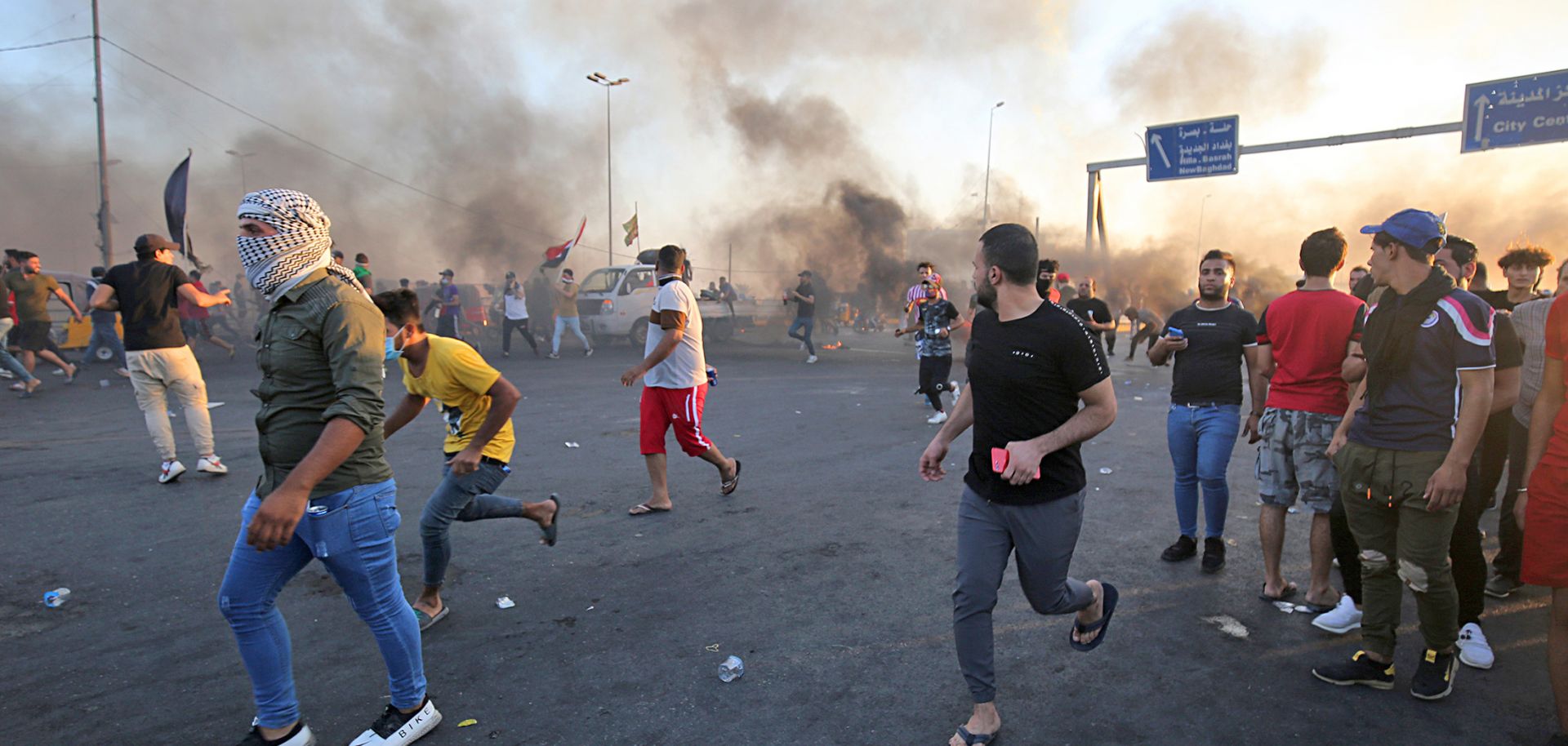ASSESSMENTS
Why Baghdad's Attempts to Mollify Protests Are Falling on Deaf Ears
Oct 25, 2019 | 17:37 GMT

Burning tires block roads in Baghdad during protests on Oct. 5, 2019. Issues including corruption, poor public services and unemployment have fomented public anger at the Iraqi government. Its options for responding will come at a cost.
(AHMAD AL-RUBAYE/AFP via Getty Images)
Highlights
- Popular anger at lingering political and economic grievances is bound to keep resurfacing in Iraq so long as the economy continues to suffer from deep structural problems.
- Citizens, mistrustful after years of unfulfilled promises of more jobs and better services, are pushing their leaders to root out the corruption at the heart of Iraq's economic stagnation.
- Contrary to popular perceptions about Iraq, the unrest isn’t sectarian in nature, but focused instead on poor governance, corruption and a general lack of economic opportunity.
Subscribe Now
SubscribeAlready have an account?
